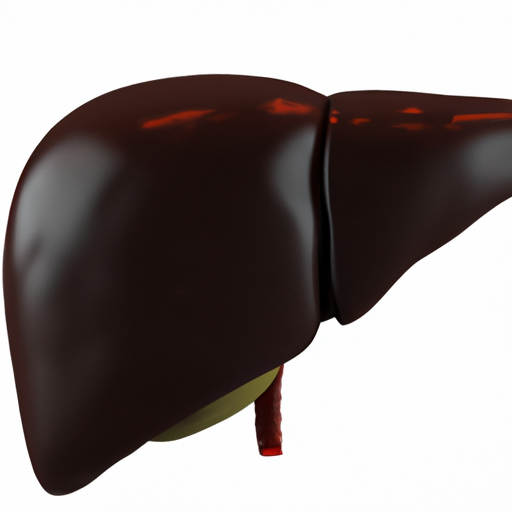
Hemochromatosis is a genetic disorder that causes the body to absorb too much iron from the food you eat. This excess iron is stored in the body’s tissues and organs, which can lead to serious health problems. While the symptoms of hemochromatosis can vary from person to person, it’s important to be aware of the common signs and symptoms of this condition.
In this article, we will discuss the symptoms of hemochromatosis and provide information on how to recognize and manage this condition.
Joint Pain
One of the most common symptoms of hemochromatosis is joint pain. Excess iron in the body can lead to joint damage and inflammation, causing pain, stiffness, and swelling in the joints. Typically, the joint pain associated with hemochromatosis tends to affect the hands and wrists, but it can also occur in other joints throughout the body.
If you experience persistent joint pain, especially in combination with other symptoms of hemochromatosis, it’s important to consult with a healthcare professional for further evaluation and testing.
Fatigue
Fatigue is another common symptom of hemochromatosis. The excess iron in the body can impact the function of the liver and other organs, leading to feelings of tiredness and weakness. Many individuals with hemochromatosis report feeling constantly fatigued, even after getting an adequate amount of sleep.
If you are experiencing persistent fatigue, it’s important to discuss this symptom with your healthcare provider to determine if hemochromatosis could be the underlying cause.
Abdominal Pain
Abdominal pain and discomfort can also be a symptom of hemochromatosis. The excess iron accumulation in the liver can lead to liver damage and inflammation, resulting in abdominal pain, nausea, and a feeling of fullness in the abdomen. If left untreated, hemochromatosis can progress to more severe liver complications, such as cirrhosis and liver cancer.
If you are experiencing persistent abdominal pain, it’s important to seek medical attention for a proper diagnosis and treatment plan.
Irregular Heartbeat
Hemochromatosis can also affect the heart, leading to irregular heartbeats, also known as arrhythmias. The excess iron in the heart muscle can disrupt its normal rhythm, causing palpitations, dizziness, and shortness of breath. It’s important to note that arrhythmias can be a serious complication of hemochromatosis and should be addressed by a healthcare professional.
If you are experiencing irregular heartbeats or other symptoms of heart problems, it’s crucial to seek medical help immediately.
Impotence
In men, hemochromatosis can lead to impotence, also known as erectile dysfunction. The excess iron in the body can contribute to hormonal imbalances and damage to the blood vessels, affecting sexual function. It’s important for men with hemochromatosis to discuss any symptoms of impotence with their healthcare provider for appropriate evaluation and treatment options.
If you are experiencing symptoms of impotence, it’s essential to seek medical advice to address any potential underlying causes, including hemochromatosis.
Loss of Libido
In addition to impotence in men, hemochromatosis can also lead to a loss of libido, or decreased interest in sexual activity, in both men and women. The hormonal imbalances caused by excess iron in the body can impact sexual desire and function. If you are experiencing a loss of libido, it’s important to discuss this symptom with your healthcare provider to determine if hemochromatosis could be a contributing factor.
It’s crucial to address any changes in sexual function and seek medical advice for appropriate evaluation and management of hemochromatosis symptoms.
Memory Problems
Some individuals with hemochromatosis may experience cognitive symptoms, such as memory problems and difficulty concentrating. The excess iron in the brain can lead to neurological complications, affecting cognitive function and mental clarity. If you are experiencing persistent memory problems or cognitive difficulties, it’s important to discuss these symptoms with a healthcare professional for further evaluation and management.
Seeking medical advice for memory problems and cognitive difficulties is essential to address any potential underlying causes, including hemochromatosis.
Diabetes
Hemochromatosis can also increase the risk of developing type 2 diabetes. The excess iron in the body can impact insulin production and function, leading to insulin resistance and elevated blood sugar levels. If you have hemochromatosis, it’s important to monitor your blood sugar levels regularly and discuss any changes with your healthcare provider for appropriate management and treatment.
Managing diabetes in individuals with hemochromatosis is crucial to prevent further complications and promote overall health and well-being.
Skin Discoloration
One of the visible signs of hemochromatosis is skin discoloration, especially in the form of bronze or grayish pigmentation. This discoloration typically affects areas of the skin that are exposed to the sun, such as the face, hands, and feet. If you notice any changes in your skin pigmentation, it’s important to bring this symptom to the attention of your healthcare provider for further evaluation and testing.
Addressing skin discoloration is essential to identify any potential underlying causes, such as hemochromatosis, and to initiate appropriate treatment and management.
Other Symptoms
In addition to the symptoms mentioned above, hemochromatosis can also lead to other health concerns, such as weakness, abdominal pain, and unexplained weight loss. It’s important to be aware of the potential symptoms of hemochromatosis and to seek medical attention for a proper diagnosis and treatment plan.
If you are experiencing any concerning symptoms or changes in your health, it’s crucial to consult with a healthcare professional for appropriate evaluation and management of hemochromatosis.

















